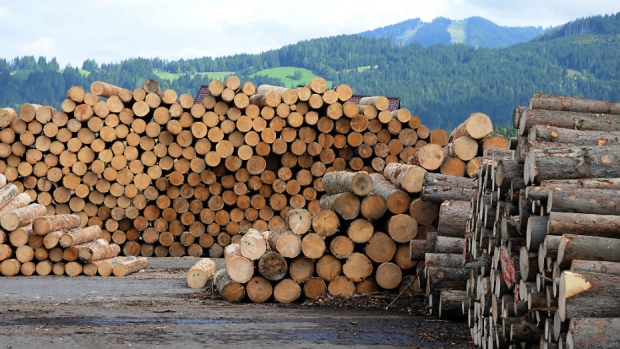Nov 25, 2016
U.S. Lumber Coalition files petition against Canadian softwood producers
, The Canadian Press

The Canadian-U.S. softwood lumber dispute reignited Friday after the U.S. Lumber Coalition said it formally petitioned the American government to impose duties against Canadian softwood lumber producers.
The lobby group said it asked the U.S. Department of Commerce and the U.S. International Trade Commission on Friday to restore the conditions of "fair trade" for softwood lumber.
The coalition alleges that provincial governments, which own most of Canada's vast timberlands, provide trees to Canadian producers at rates far below market value, along with other subsidies.
As a result, the group says Canadian lumber is being sold for less than fair value in the United States.
"The coalition's legal action seeks for the United States to impose duties to offset the harm caused to U.S. mills, workers and communities by Canadian softwood lumber production subsidies and Canadian producers dumping the subsidized merchandise on the U.S. market," the U.S. Lumber Coalition said in a news release.
Softwood producers in Canada have disputed the U.S. Lumber Coalition's assertions.
Resolute Forest Products said producers in Quebec and Ontario pay market prices and should have access to free trade with the United States. A different system is used in Western Canada, which accounts for most of Canadian lumber exports to the U.S.
The B.C. Lumber Trade Council said Friday that independent NAFTA panels have previously concluded that Canadian lumber was not subsidized and did not harm the U.S. lumber industry.
The Canadian government anticipated Friday's filing. Alex Lawrence, a spokesman for International Trade Minister Chrystia Freeland, said Canada is prepared for any situation, and the government will "vigorously defend" the interests of Canadian workers and producers.
Still, he said the protectionist climate in the U.S. complicates any trade negotiation, including this one.
Softwood lumber is excluded from NAFTA and lumber producers in both countries continually bicker over whether the access by Canadian companies to public forests constitutes an illegal subsidy.
The 2006 softwood lumber agreement expired a year ago but a one-year standstill period kicked in to allow an attempt at resolution.
The agreement required Canadian softwood producers to pay export taxes if the price of lumber went below a certain amount. If the price of lumber was above that threshold, Canadian producers were not subject to export taxes or restrictions on how much softwood they could ship to the U.S.


